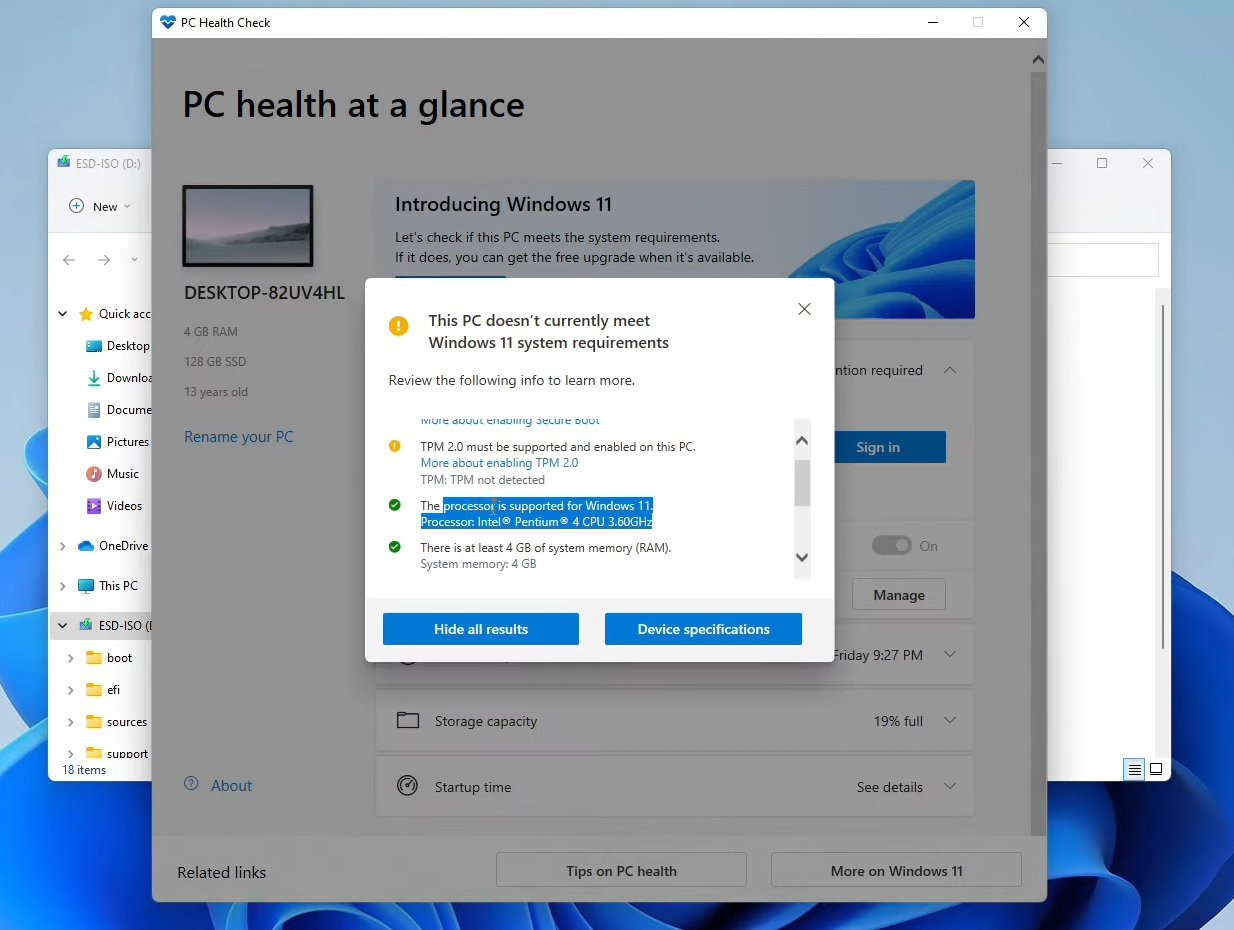After several tests in beta, Microsoft introduced the Windows 11 στις 5 Οκτωβρίου. Τα Windows 11 μπορείτε να τα δοκιμάσετε το λειτουργικό σύστημα μέσω του Windows Update ή με μη αυτόματο κατέβασμα του Windows ISO 11. However, this is only possible if the hardware you are using supports the upgrade.
The biggest problem with Windows 11 is requirements in hardware. Although the operating system upgrade is available for free from Windows 10, it can only be officially installed on supported devices.
Currently, only computers with processors 8th Gen Intel and XNUMXnd Gen Ryzen processors. Or so we knew…

Microsoft has added some 7th generation Intel models to its list of supported processors, and paradoxically, the company is not blocking upgrades to systems running the Intel Pentium 4 661, which was released in 2007 and obviously does not meet all of the requirements of Windows 11.
As you can see in the image above, the Intel Pentium 4 661, which has only one core and 3.6Ghz clock speed, is listed as a supported processor in PC HealthCheck.
Microsoft probably forgot to add all the processors not supported in PC Health Check for this particular Intel chip family.
The Intel 15 Family Model is not included in the list of unsupported CPUs, and according to PC Health Check, Windows 11 can be officially installed.
Some users have already installed Windows 11 normally on computers with Pentium 4 661 after bypassing the requirements for TPM 2.0 & Secure Boot and regularly receive cumulative updates such as Build 22000.282.





